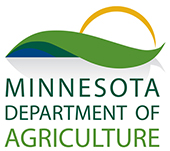Rodents | Mice In Your Home
Some rodents are destructive pests that can spread disease, contaminate food and destroy property. They vary in color and size by species. The most common rodents that live in close proximity to humans (called commensal rodents) in the United States are Norway rats, roof rats, house mice and deer mice.
§ Norway rats are grayish-brown, roughly 13 to 17 inches long from nose to end of tail.
§ Roof rats are black or brown and smaller and sleeker than Norway rats, with tails longer than their bodies.
§ House mice, usually light gray, are small and slender, five to seven inches long from nose to end of tail.
§ Deer mice are small, tan or brown on top with white feet and underbellies.
Where are rodents found?
Rodents are found throughout the world, wherever food and water sources exist and can be difficult to keep out of homes regardless of size or species. In fact, rats can squeeze through openings as small as a quarter, and mice can squeeze through holes the size of a dime.
Why should I be concerned about rodents?
Rodents, which can be hard to control, may also be harmful, contaminating food and spreading diseases.
Rodent infestation in and around the home remains the primary risk for hantavirus. Proper removal of any animal droppings, along with sanitation is absolutely necessary. If your home was invaded by any of these animals and they made a mess, we can help you. A professional wild animal management company can properly and safely remove the droppings and sanitize the area, ensuring it is clean. The problem with doing it yourself are diseases. Droppings of any animal are perfect breeding grounds for bacteria and diseases, and if you are not careful it could be harmful. For instance, not wearing a mask while cleaning bat guano can be dangerous, and raccoon feces can harbor parasitic worms that can make you very ill and in rare cases, death.
Who is affected by hantavirus pulmonary syndrome (HPS)
Through December 1, 2009, a total of 534 cases of hantavirus pulmonary syndrome have been reported in the United States. Of these, 503 cases occurred from 1993, onward, following identification of hantavirus pulmonary syndrome, whereas 31 cases were retrospectively identified. Thirty-six percent of all reported cases have resulted in death.
Of persons ill with HPS, 63% have been male, 37% female.
The mean age of confirmed case patients is 37 years (range: 6 to 83 years).
HPS can strike anyone; however, whites currently account for 78% of all cases. American Indians account for about 18% of cases, African Americans for 2% of cases, and Asians for 1% of cases. About 20% of HPS cases have been reported among Hispanics (ethnicity considered separately from race).
Cases have been reported in 31 states, including most of the western half of the country and some eastern states as well. Over half of the confirmed cases have been reported from areas outside the Four Corners area.
About three-quarters of patients with HPS have been residents of rural areas.
Total Cases: 545 (Cumulative case count per state valid as of July 1, 2010) States Cases by State of Exposure Cases by Reporting State Cases by State of Residence
The last thing anyone wants to see crawling through their home is rodents and mice. But if you have them, call a Minnesota Wild Animal Management Expert; they are experts at mice removal in a humane way. Rodent control is still considered the most effective prevention of HPS. Contact your local pest control professional to discuss extermination options.




